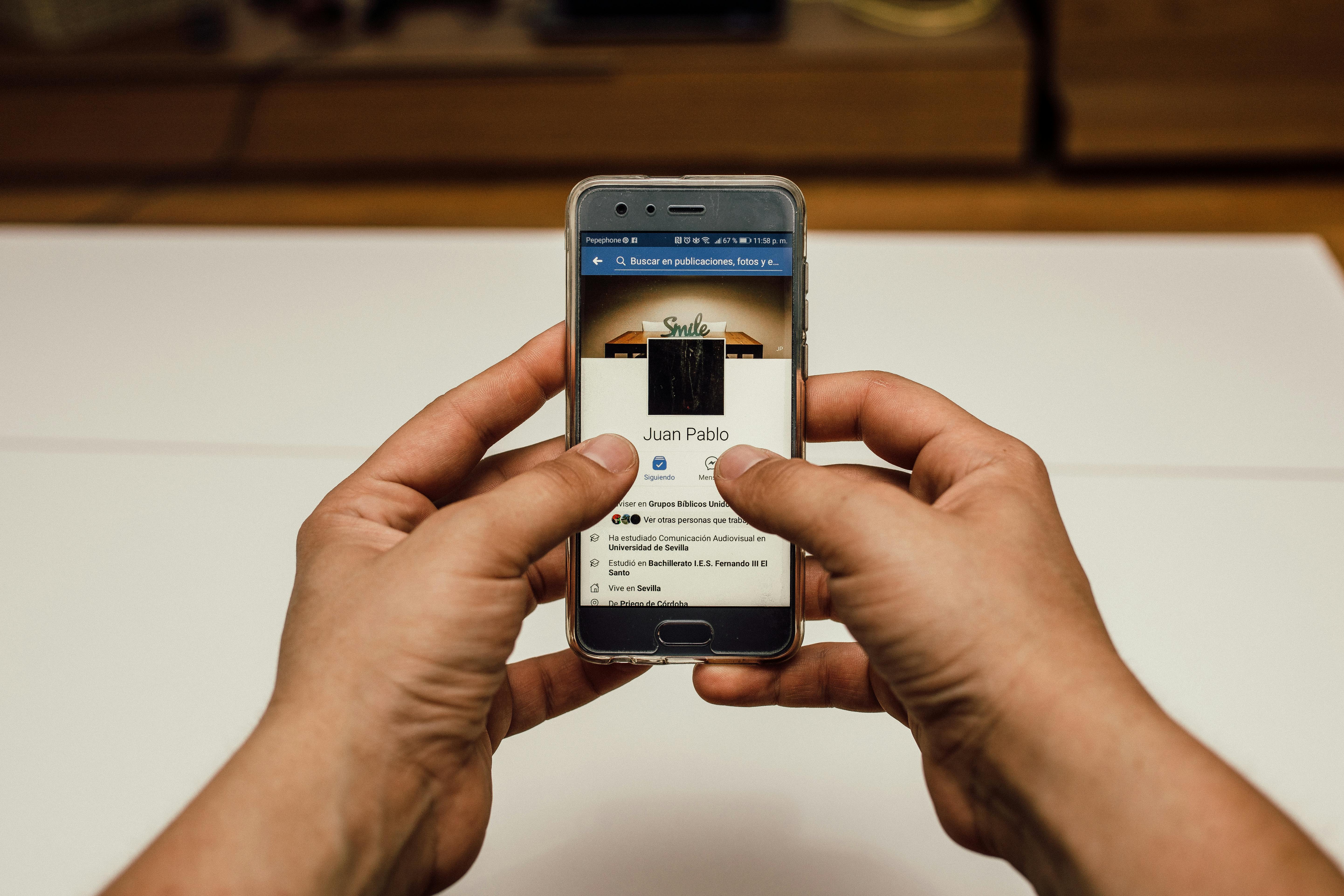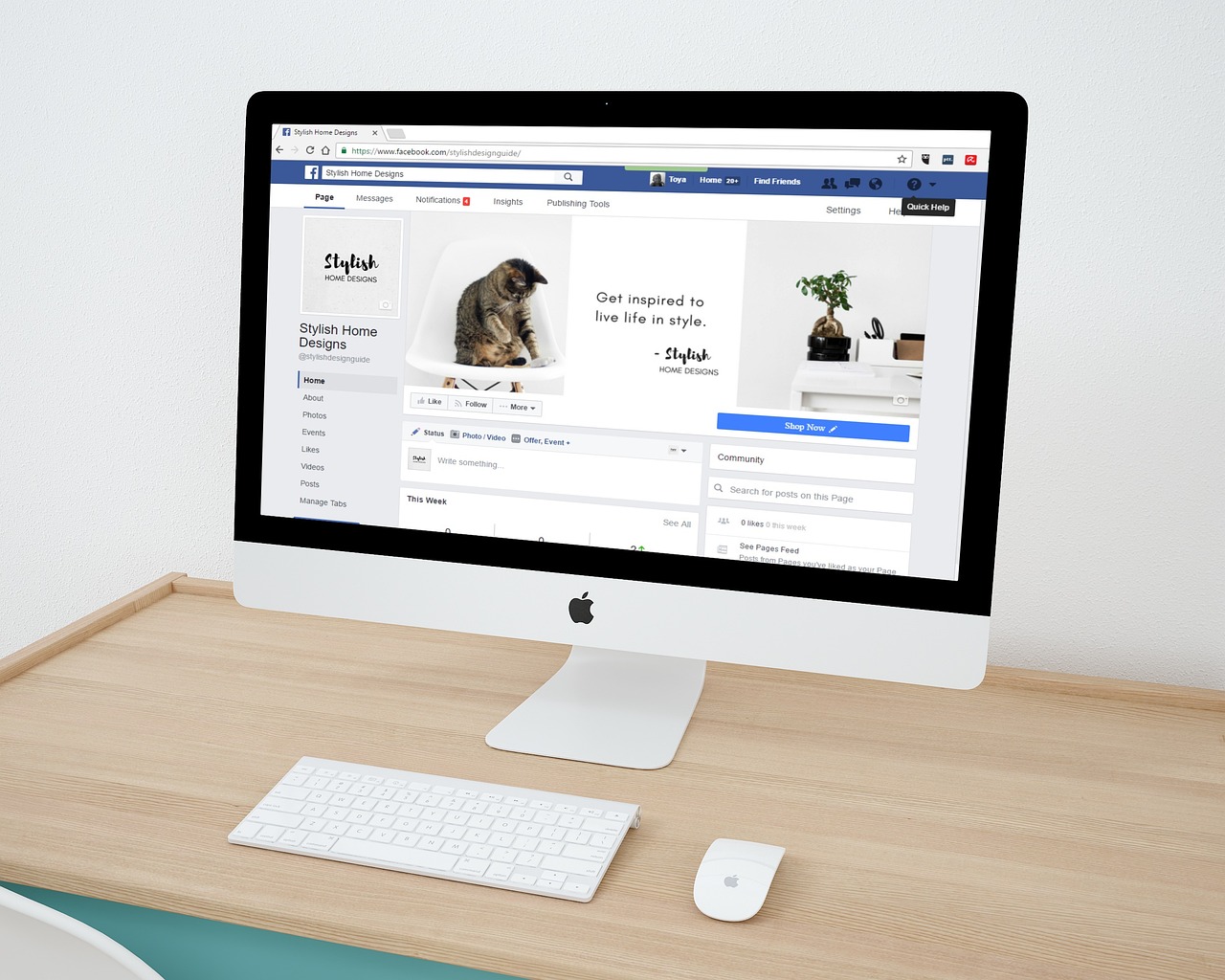Did you know that 77% of patients now search online before choosing a healthcare provider? That means your first impression is often digital—and if your practice isn’t keeping up, you risk being overlooked before a patient ever calls. In a crowded, competitive healthcare market, understanding today’s healthcare marketing trends isn’t optional; it’s a critical part of staying visible, trusted, and relevant.This guide breaks down the healthcare marketing trends that actually matter for small medical practices—without fluff or jargon. You’ll learn where to focus your time and budget, how each trend impacts patient trust and revenue, and which strategies deliver real results with realistic staff capacity. Expect practical insights, quick wins you can use right away, and common mistakes to avoid so your marketing supports growth instead of draining resources.Startling Facts: Why Healthcare Marketing Trends Matter More Than EverToday’s healthcare market is evolving fast, and patients are the ones in control. Nearly 8 out of 10 people will turn to Google, online reviews, or social media before they ever call your front desk. If your practice still relies on word-of-mouth or outdated tactics, you risk losing patients to competitors—sometimes before you even realize you were considered. Healthcare marketing trends like local search engine optimization, social proof, and accessible digital marketing are now non-negotiable for any care organization wanting to grow their reputation and revenue.These shifts aren’t just about shiny new tech; they’re about patient trust. When your marketing strategy puts patients first—offering simple answers, clear information, and transparency—your community notices. Following proven marketing trends can mean the difference between a thriving, resilient healthcare provider and one left behind. By seeing the digital world through a patient’s eyes, you ensure that every marketing effort is not only compliant and effective, but truly supportive of patient experience.Why Small Practices Can’t Ignore Healthcare Marketing TrendsToday’s healthcare journey is shaped by patients—not marketing executives or big-budget hospitals. With more than 75% of potential patients researching online before making a decision, your online presence makes all the difference. If your marketing campaigns and content strategies aren’t built for transparency, ease, and trust, patients may dismiss your care organization before you have a chance to connect. Ignoring healthcare marketing trends can lead to lost trust, missed revenue opportunities, and your reputation slipping in your community. It’s not about having the biggest marketing budget—it’s about being visible, approachable, and reliable in every digital touchpoint.Digital marketing and healthcare PR are now critical components of every successful care marketing strategy. Patients expect seamless experiences online, quick access to accurate information, and the reassurance that their data is secure. For small medical practices, adopting these trends levels the playing field—letting you compete with larger healthcare organizations for local visibility and patient trust without overwhelming your team or resources.Making Sense of Healthcare Marketing Trends at a GlanceWith so many healthcare marketing trends competing for your attention, it’s easy for small practices to feel overwhelmed. Not every trend deserves your time, budget, or staff energy—and chasing too many at once can dilute results. What matters most is understanding which strategies directly improve patient trust, visibility, and access to care, and which ones require longer-term commitment to see meaningful returns.The table below breaks down today’s most important healthcare marketing trends in a clear, practical way. You’ll see how each trend impacts patients, how quickly it can be implemented, whether it delivers quick wins or long-term value, and what compliance considerations to keep in mind. Use this snapshot to prioritize smart, patient-first marketing moves that fit your practice’s capacity while still supporting sustainable growth.Top 10 Healthcare Marketing Trends Shaping the Healthcare MarketHealthcare Marketing Trend #1: Local SEO and Google Business Profile OptimizationHealthcare Marketing Trend #2: Online Reviews and Reputation Management for Care MarketingHealthcare Marketing Trend #3: Patient-Centric Website Experiences in Healthcare MarketingHealthcare Marketing Trend #4: Content Marketing and Patient EducationHealthcare Marketing Trend #5: Social Media for Patient Trust and Practice GrowthHealthcare Marketing Trend #6: Video Content as a Marketing Strategy in the Healthcare IndustryHealthcare Marketing Trend #7: SMS and Email Marketing for Relationship BuildingHealthcare Marketing Trend #8: Accessibility & Compliance in Healthcare MarketingHealthcare Marketing Trend #9: Data Privacy, HIPAA, and Ethical Healthcare PRHealthcare Marketing Trend #10: Automations and AI in Healthcare Marketing TrendsHow Today’s Healthcare Marketing Trends Affect Patients and Practice GrowthTrendImpact on PatientsTime to ImplementQuick Win or Long-TermCompliance NoteLocal SEO & Google Business ProfilePatients find you easily during urgent care or new-provider searchesDays to a weekQuick WinList accurate, current details; never include PHI*Online Reviews & Reputation ManagementBuilds instant trust; shapes online reputation in the healthcare marketOngoing (1–2 hours/week)Quick Win & Long-TermHIPAA: No sharing patient info when respondingPatient-Centric WebsiteReduces drop-off; improves patient experience and access to care1–2 weeksLong-TermADA & WCAG accessibility standardsContent MarketingEstablishes expertise & answers common questionsVaries (blogs: days; guides: weeks)Long-TermNo medical advice, use clear languageSocial Media EngagementHumanizes practice; connects with new patient groups1–2 weeks to set upQuick Win & Long-TermNever share patient stories without consentVideo ContentBuilds rapport; sets expectations before the appointmentDaysQuick WinConsent for real patients; no PHI in videosSMS & Email RemindersReduces no-shows; improves patient satisfaction1–2 weeksLong-TermOpt-in, encrypted platforms requiredAccessibility & ComplianceIncludes all patients; avoids legal risks2–4 weeks audit/updateLong-TermADA, WCAG, HIPAAData Privacy, HIPAA & PRProtects patient information, enhances trustOngoingLong-TermStrict adherence to legal requirementsAutomations & AIStreamlines admin, supports real people, boosts patient experienceVaries by toolLong-TermCheck for privacy features and ongoing reviewApplying Healthcare Marketing Trends in Today’s Care Marketing Environment1. Local SEO Is the Cornerstone of Healthcare Marketing TrendsLocal SEO (Search Engine Optimization) ensures your practice is easily found by patients searching with terms like “doctor near me” or “urgent care open now.” Start by claiming and verifying your Google Business Profile—this is your digital front door. Add up-to-date contact information, hours, your care specialties, and engaging photos of your practice. Managing directory listings (such as Healthgrades or Yelp) and ensuring they exactly match your business profile builds trust with both Google and your potential patients. A well-optimized local SEO presence not only drives more foot traffic but also boosts your reputation in the healthcare market. Remember, patients research on-the-go—your presence in maps and local search often determines their first impression.Strong local SEO is not a one-time project, but a consistent habit. Monitor your listings, remove any outdated information (like old phone numbers or hours), and encourage satisfied patients to leave positive reviews. When your Google Business Profile is sharp, you make a powerful first impression before a patient even walks through your door. This marketing trend is one of the quickest ways for small practices to increase visibility and attract new patients in today’s highly competitive care market.2. Online Reviews Build—or Break—Patient Trust in the Healthcare MarketIn the digital age, online reviews often have more influence on patient decisions than traditional advertising. Patients trust other patients, making review sites and star ratings a cornerstone of care marketing. Responding sincerely—whether to positive feedback or constructive criticism—shows you value transparency and accountability. Make it part of your workflow to request reviews shortly after visits. Be careful: all responses must remain HIPAA-compliant; never share or imply any protected health information (PHI) in your replies.Weekly review monitoring can quickly elevate your online reputation, opening doors to more ideal patients and strengthening your practice’s credibility within the healthcare market. Consider sharing de-identified, positive feedback (with consent) on your practice’s website or social media to reinforce your brand as patient-focused and trustworthy. This simple, ongoing marketing strategy not only secures your place in local search results but also contributes to your standing in the wider care organizations community.3. Your Website Shapes the Healthcare Marketing Trend: Is It Patient-Centric?Your website is your most important digital marketing asset. Patients expect fast answers to their questions, whether it’s your hours, insurance accepted, or how to book an appointment. Ensure your homepage is clear, mobile-responsive, and visually welcoming. Navigation should feel effortless—visitors must find key details (like contact forms, services, and directions) within a click or two. Use calls-to-action (“Schedule Now,” “Message Our Team”) in strategic spots, and include a robust FAQ section addressing common concerns.Patient-centric websites minimize frustration and reduce the risk of potential patients leaving for a competitor’s site. Regularly update your web content and keep messaging direct and non-technical. Your website must also comply with accessibility standards (ADA, WCAG) to serve all patients equitably and position your practice as inclusive and up to date with healthcare marketing trends.4. Content Marketing Strategies for Educating the Healthcare MarketThoughtful content marketing positions you as a healthcare professional who cares—and boosts your standing in search results. Original blog posts, brief educational videos, and downloadable guides offer real value, answering questions before patients need to ask. Content marketing isn’t about churning out endless articles, but about showing you understand patient needs and are eager to help. Use plain-English language and avoid medical jargon whenever possible, or explain it clearly when needed.Regularly publishing patient-focused content doesn’t need to stretch your resources. Repurpose social media posts into blog material or break longer guides into quick, helpful tips. A strong content strategy fosters patient confidence, improves search engine ranking, and offers a competitive edge in the fast-changing healthcare market.5. Harness Social Media to Broaden Care Marketing ReachSocial media offers the perfect platform for small practices to show personality, offer timely health tips, and connect with current and potential patients. Rather than spreading yourself thin, choose one or two platforms—most often Facebook and Instagram are best for healthcare providers. Use them to introduce staff, highlight patient resources, celebrate events, and share behind-the-scenes glimpses into your daily practice. Social media is not about perfection—it’s about authentic connection and community engagement.Monitor comments and questions in a timely manner, and always use HIPAA-compliant practices in your communications. With a focused social media strategy, you’ll expand your care marketing reach and reinforce patient trust, which can make a lasting difference in both reputation and new-patient growth in the healthcare market.6. The Rise of Video Content in Healthcare Marketing TrendsMore patients than ever look to video content before making healthcare decisions. Short, personable videos—like a doctor’s introduction, a short tour of your clinic, or a quick Q&A—help reduce anxiety and establish familiarity before patients even step through the door. Authentic video content outperforms staged, scripted pieces. Use a smartphone or simple camera setup, and don’t worry about perfection—clear audio and a welcoming tone are what matter most.This marketing trend is a quick win for small practices: a 60-second “Meet Your Healthcare Pro” video can be added to your website and social media in an afternoon. Video content also enhances your Google Business Profile and boosts rankings in search results, giving you an edge in the competitive healthcare industry. Always secure consent for any patient appearances, and double-check that no personal health information is visible or discussed.7. SMS & Email: High-ROI Marketing Strategies in Care MarketingText and email campaigns are workhorses when it comes to patient engagement and retention. Automated appointment reminders cut down on no-shows, while tailored educational emails keep patients informed between visits. Start small: schedule welcome messages for new patients, post-appointment follow-ups, or satisfaction surveys. By regularly reaching out through SMS and email, you demonstrate attentiveness and gather actionable insights into patient satisfaction and expectations.Every SMS and email must prioritize privacy. Only use trusted platforms with built-in encryption and clear opt-in/opt-out settings, especially in the healthcare market. This marketing trend is uniquely efficient—making it possible for small medical teams to nurture loyalty and patient experience without overwhelming staff resources or time.8. Accessibility, Inclusion, and Healthcare Marketing ComplianceAccessible digital experiences are now both a moral and legal requirement in healthcare marketing. Your website should be easy to navigate for everyone, including those who use screen readers or require high-contrast displays. Content must be clear, simple, and available in multiple formats if possible (text, audio, video). Following ADA (Americans with Disabilities Act) and WCAG (Web Content Accessibility Guidelines) helps avoid legal trouble, extends your reach, and positions your practice as an inclusive provider in the healthcare industry.Don’t forget about communications compliance: use patient-first language, never share personal details, and always double-check that images or testimonials are approved for use. Investing in accessibility is a key insurance policy, ensuring you serve all segments of your community and remain competitive amid evolving healthcare marketing trends.9. Data Privacy, HIPAA, and Ethical Healthcare PRPatient privacy is the cornerstone of trust in healthcare marketing. As marketing trends lean more heavily on digital tools, strict adherence to HIPAA and privacy regulations is essential. This means never sharing patient stories, photos, or testimonials without explicit, documented consent. Use secure digital forms for collecting information, and always include clear disclaimers about data use on your website and in marketing emails.Ethical healthcare PR—the way you present your practice in public—should be honest, transparent, and sensitive to patient confidentiality. Turning compliance into a marketing strength reassures your community that you’re a responsible and professional care provider. Regular compliance audits and privacy-first messaging differentiate you against less attentive competitors in the healthcare market.10. Automations and AI—The Future of Healthcare Marketing TrendsAutomations and artificial intelligence (AI) are transforming how small practices deliver consistent, frictionless experiences for patients. AI-powered chatbots can answer basic questions, guide patients to resources, and screen appointment requests any time of day. Automated tools for reminders, surveys, and intake forms save your team hours while ensuring patients stay engaged and informed.However, these automations must be carefully managed: always review AI outputs for accuracy, double-check safeguards for data security, and prioritize human oversight at critical points in the patient journey. Leveraged wisely, this marketing trend will give your team more time for what matters most—direct patient care—while streamlining the experience for everyone involved in the healthcare market.Common Healthcare Marketing Mistakes (and How to Avoid Them)One of the most frequent pitfalls in healthcare marketing is using medical jargon without explanation. While clinicians understand terms and procedures, most patients don’t, which can create confusion or even distrust. Clear, plain-language communication ensures patients feel informed, confident, and cared for.Neglecting your online reputation is another critical mistake. With 77% of patients researching providers online, negative or unmonitored reviews can quickly erode trust. Inconsistent or unprofessional branding—from your website to social media profiles—also sends mixed messages and diminishes credibility. Equally important is adherence to compliance and accessibility standards; failing to follow HIPAA guidelines or ADA/WCAG accessibility rules can create legal risk and alienate patients. Finally, skipping regular website updates, such as changes to hours, services, or insurance accepted, can frustrate patients and cost you new appointments. Avoiding these missteps sets a foundation for trustworthy, effective marketing.Quick Wins: Where to Start With Healthcare Marketing TrendsGetting started with healthcare marketing doesn’t have to be overwhelming. A few targeted actions can make a big difference right away. Begin by claiming and optimizing your Google Business Profile to boost local SEO and help potential patients find you quickly. Request and respond to patient reviews weekly to build trust and improve your online reputation.Updating your website with accurate hours, services, and insurance information ensures visitors have the information they need to make a decision. Adding a simple video that introduces your practice and staff can humanize your brand and build rapport before patients even step through the door. Finally, sending a welcome email sequence to new patients establishes communication early and encourages engagement. These quick wins create momentum and position your practice for long-term marketing success.Staying Ahead With Patient-Focused Healthcare MarketingIn today’s digital-first healthcare market, staying visible, trusted, and relevant is no longer optional. By focusing on patient-centered marketing trends—like local SEO, online reputation management, accessible websites, and ethical use of digital tools—small practices can attract new patients, strengthen loyalty, and compete effectively against larger organizations. Implementing even a few quick wins, such as optimizing your Google Business Profile or sending automated appointment reminders, can create immediate impact without overwhelming your team.Long-term success comes from consistency, compliance, and thoughtful integration of emerging trends. By embedding marketing strategies into everyday practice operations and using clear, actionable data, healthcare providers not only enhance patient experience but also protect their reputation and build sustainable growth. Staying informed, avoiding common mistakes, and gradually adopting innovations like AI and video content ensures your practice remains a trusted, first-choice option in your community.Frequently Asked Questions on Healthcare Marketing TrendsWhy is local SEO important for small healthcare practices?Local SEO helps patients find your practice online quickly, especially when searching for urgent care or new providers. Optimizing your Google Business Profile ensures accurate information and builds trust.How often should practices monitor online reviews?Weekly review monitoring is ideal. Responding to feedback promptly shows transparency, reinforces trust, and can improve patient engagement.What makes a website patient-centric?A patient-centric website is clear, easy to navigate, mobile-friendly, and ADA-compliant. It provides quick access to essential information like hours, services, insurance, and appointment booking.Are video and social media effective for healthcare marketing?Yes, short, authentic videos and focused social media engagement build rapport, humanize your practice, and connect with patients beyond traditional methods. Consent and privacy compliance are critical.How can small practices start using these marketing trends without overwhelming their staff?Begin with quick wins like updating your Google Business Profile, requesting reviews, adding simple videos, or sending email/SMS reminders. Gradually implement longer-term strategies as staff capacity allows.Next Steps: Grow With Confidence Through Healthcare Marketing TrendsTake action today to make your practice the first choice for patients. Focus on quick wins like optimizing your Google Business Profile, managing online reviews, and creating accessible, patient-centered digital experiences—all while protecting privacy at every touchpoint. Let Banida Digital guide you through these healthcare marketing trends without the overwhelm. 👉 Visit our website or schedule your free consultation now, and start building trust, boosting visibility, and growing your practice with confidence.Explore Top Marketing Trends




 Add Row
Add Row  Add
Add 




Write A Comment